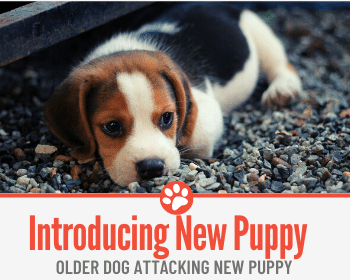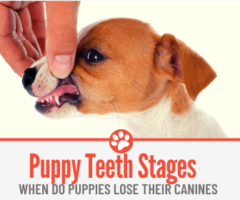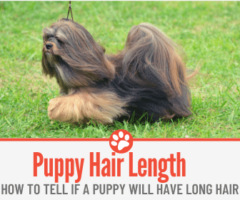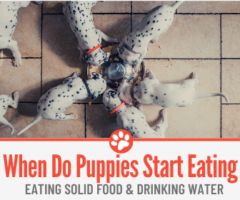 My beautiful collie is getting old and I can’t bear to live without my four-footed companion. I’m thinking of getting a new pup so that when, sadly, the day comes that she goes, I will have someone else to spend my days with. I’m really worried though, could I have a situation with the older dog attacking the new puppy?
My beautiful collie is getting old and I can’t bear to live without my four-footed companion. I’m thinking of getting a new pup so that when, sadly, the day comes that she goes, I will have someone else to spend my days with. I’m really worried though, could I have a situation with the older dog attacking the new puppy?
Is it normal for an older dog to be attacking a new puppy?
It looks like that, yes, if things are not managed properly, is it normal for an older dog to attack a new puppy.
Think about it. Up until now you have lavished all your love and attention on your older furry friend, and then suddenly brought in a stranger and expected him/her to be fine with sharing – not only their toys and give up their space – but to also let me, their owner, have some of their very-much cherished attention.
We humans would have our noses pushed out of joint in such circumstances, but add to that a dog’s natural wolfpack mentality and you are putting them into quite a stressful situation.
So, is there anything that can be done to make the transition work more smoothly? Yes, there are many things you can do and few are troublesome or difficult to implement. In no time you will have your two pets bounding around as best friends, playing and looking out for one another. Let me explain how it works.
My dog hates my new puppy
You might think that your older dog hates this new puppy, but as I touched on above, that is not understanding the situation properly. The first thing to note is that aggression is not breed-dependent; it is more about the personality of the dog and how it has been raised and trained to behave in specific situations.
This is good to know because if your dog is struggling with the newcomer, you can be sure that it is something you can change. Do not feel despondent.
Bringing a new puppy home to another dog creates a massive shift in dynamics for everyone. You will all need time to get used to the new ways of being. Your older dog does not hate the new puppy, it just doesn’t understand what it’s role in the family is anymore.
My puppy is bullying my older dog
Even though they are small, young pups can negatively impact on the wellbeing of older dogs because they have not learned social norms. Your puppy and older dog are not getting along and the older dog feels bullied. In my situation, the puppy was biting the older dog and kept attacking my other dog for no reason.
To humans thus might look like bullying, but it is actually more about the puppy not yet understanding what it can and can’t do. If not corrected, it can lead to undue stress and depression in the older dog.
Signs an older dog is depressed with the new puppy
If it’ all a bit too much, older dogs can get stressed by new puppies, and the signs to watch out for are-
-
Appetite changes.
A sad dog won’t feel like eating. You might see bowls still full of food or that your furry friend is starting to look a lot thinner.
-
Lethargic
Lack of food means lack of energy and combine that with a lack of interest in life and your dog will stop asking to go for walks, no longer bound up to you or vigorously nuzzle your hand for treats.
-
Sleeping All the Time.
Dogs sleep a lot anyway, but if you notice a change, that your dog is sleeping more than normal, he/she might be depressed.
-
Paw Licking
This self-comforting action is a mechanism for your dog to try to push out unhappy thoughts and make itself feel little better.
-
Avoidance and hiding
Your dog may no longer want to go on walks and actively avoid times when you pull out the leash.
How to introduce a new puppy to your dog
How you introduce a new dog to your home, where there is already another dog, should be properly managed to make everyone feel as safe as possible. Rather than bringing the new puppy straight into your house, let your older dog meet the puppy on neutral ground. A park or on the road outside is a good idea.
That way they can become acquainted without the older one feeling like the pup is claiming its territory.
Keep both on a leash, so that neither can impose on the other unnecessarily. Let them come close, to sniff each other and find out what they are dealing with. Go for a little walk together.
Once they have had a chance to properly meet, take them home. Keep both on home leashes, so you can separate them at any point, should it be needed. Think about putting up a baby gate to allow the older dog freedom, should it need time apart.
Importantly, don’t hand over your old dog’s and possessions to the younger one. Don’t even tempt the younger one, so put toys away and out of reach. Buy new eating and water bowls, new rugs and bed, new balls. That way they can decide when the time is right to share, rather than one feeling ousted.
Another extremely crucial factor in this whole process is how you, the owner, handle the situation. How you train the younger pup is also key. Treat them fairly, but always remember that the older dog was there first and needs time to welcome the new one in.
Let the younger be playful but when it over-steps the mark, let it know that is so. Your puppy still has a lot to learn when it comes to acceptable social behaviours.
Lastly, reward good behaviour with treats. If they have both been good around each other, have them both sit next to each other calmly, praise them and give them something delicious to enjoy.
How to get an older dog to accept a new puppy
Older dog and puppy interactions can take a while to cement into a long-lasting friendship. But how do I get my older dog to like my new puppy? Well, the best way is to give both space and slowly increase the frequency at which they come into close contact.
When they are loose around each other keep an eye on their body language and intercede as soon as things seem to be going downhill. Give your puppy a place to calm down so that it doesn’t take its energy and aggression out on the older dog.
Do more of the things that work. If you see them playing together on walks, go on more walks. If it’s throwing the ball around the garden that gives the older dog the feeling that he/she is still in control and not being harassed by the pup, do more of that.
Over time, these positive feelings will transfer to other moments when they are together and the older dog will begin to see that having the puppy around is fun.
How long does it take for a dog to get used to a new puppy?
How long is a piece of string?! Every dog is different. A couple of weeks should suffice, but if either of your dogs were rehomed they might have some deep-rooted problems and associated anxieties, which might take longer to overcome. But be assured that with lots of love and care you will create a stable, fun and loving home for all.
Lastly, it’s worth remembering the following points about how to get your older dog to accept your new puppy:
1. Dogs live in the moment.
Any aggressive display of behaviour does not come with a long-lasting grudge. Dogs react to the now but can just as quickly revert back to their happy, positive old selves.
2. Dogs have a flexible disposition.
With that I mean that your dog can have a few bad episodes with your new puppy, but can still move on. They can still live peacefully together if they’re set up for success. Usually anyway. There are obviously always exceptions.
3. Don’t be the one holding things back.
Don’t let your human emotions cloud the real situation. We often transpose our feelings onto our dogs, when in actual fact the dog is not as worried or angry as you might think!
The benefits of getting a puppy with an older dog
There are immense benefits of putting a new puppy with an older dog – to both you the owner, as well as the older dog.
From the dog’s perspective
-
Bond of friendship
There will be times when you need to leave home and your older dog is alone. Dogs are sociable creatures, so this can be a sad time for them. With a little buddy by their side they won’t get bored and will have someone else to play, eat and curl up to snooze with.
-
Feeling of authority
With their innate sense of hierarchy, canine males will quickly put the younger of the species in place. Just because dogs have been domesticated for centuries does not mean that this natural inclination has disappeared. Older dogs can teach the new puppy how things work, so that when the puppy heads outdoors and meets other dogs it behaves in an appropriate manner.
-
As a source of energy
The energy younger pups exude can rub off on the older dog. This is great if the older dog has become lethargic and just needs a little distraction and encouragement to get moving again. Watch out that your older dog doesn’t over exert itself though. Or even worse, that it can’t keep up and starts to get frustrated with the younger one constantly in its face. This can result in your older dog becoming quite stressed, which in turn is bad for its health. See above for signs of whether your dog is depressed.
From the owner’s perspective
-
Companionship
If you love dogs then there is always space in your heart for a second one. Don’t think that because you love your older dog so much that you won’t have any love for this new one. That is just not possible. And in the horrible situation where your older dog passes away, you will still have the younger one to help heal your heart.
-
Distraction
You can’t be with your dog at all times. You may also not be as energetic as your dog needs, and having a younger dog by your side means some of the older dog’s excess energy will be dissipated through bounding around after the little one.
-
Different personalities
Dogs are like humans, we all have very different personalities. Your newcomer might have some lovely qualities that complement what you want and so having two different characters in the household enhances your life even further.
Related Questions
Wolfpack Mentality
Wolves naturally organize themselves into packs to maintain stability and assist with hunting. The pack is led by an alpha male and female and they get first dibs on food, mating and what goes on in the pack.
The other wolves fall in line behind and must behave according to the pecking order. Dogs were domesticated from wolves a long, long time ago and some people think that dogs still exhibit some of the natural instincts seen in wolves.
Whether this is true is up for debate but if you are concerned about the dominance behaviour in your dog, read on to find out how you can manage it more effectively.
How to stop dog dominance behavior
It’s normal for an adult dog to correct a puppy, so you don’t want to chastise your older dog for doing what is natural to them. It may even snarl, lunge or snap at the pup if it is feeling stressed, but that is part of the learning process.
The puppy needs to learn that it is rude to jump on another dog’s head when he is resting, for exampoke. Unless the older dog harms the puppy, don’t scold it for these actions. Don’t be tempted to react to the squeals of the puppy if the older dog is telling it off, if you can see that it has not been hurt.
You are key in getting the training right and helping the older dog direct the pup in terms of what is right and what is wrong. This will alleviate the pressure on the older dog too.






